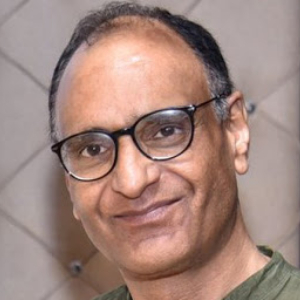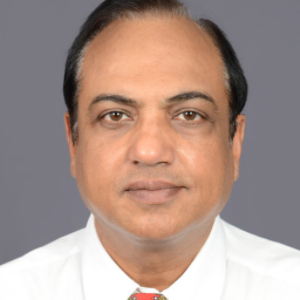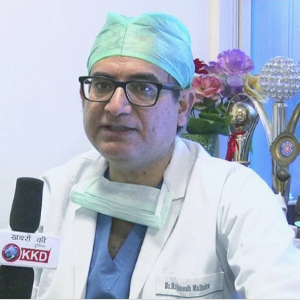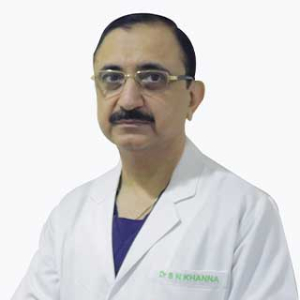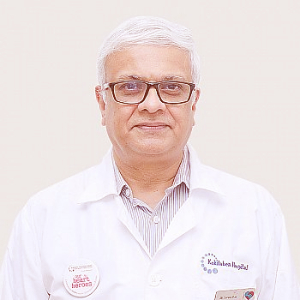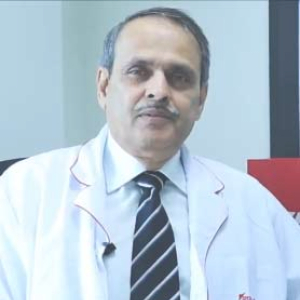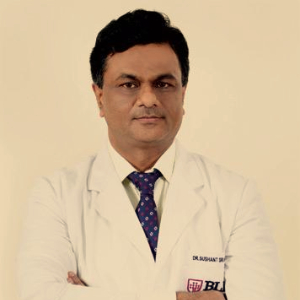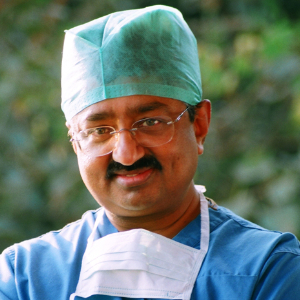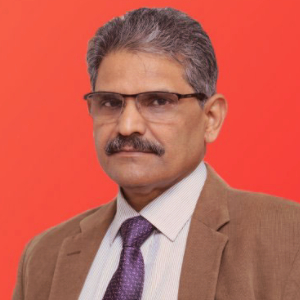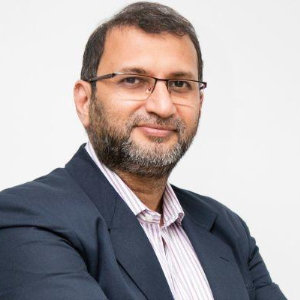Best Doctors in India for Holter Monitoring
- Cardiac Surgeon, Gurugram, India
- Over 30 years’ experience
Profile Highlights:
- Dr. Murtaza A Chishti is one of the most well-known and distinguished Cardio-Thoracic and Vascular surgeons in North India
- He has more than 3 decades of experience in the field of cardiac surgery with a specialization in heart and lung transplantation surgeries.
- He has performed more than 6000 cardiac procedures that include Total Arterial revascularization, aortic surgery, complex and re-operative coronary surgery, CABG, and several other cardiothoracic surgeries.
- Cardiac Surgeon, Mumbai, India
- Over 36 years’ experience
Profile Highlights:
- Dr. Nandkishore Kapadia is one of the leading Cardiothoracic and vascular surgeons in India excelling in heart and lung transplant surgeries.
- He has 36+ years of experience in the field during which he has performed over 10000 CABGs, 2000 heart valve repairs, and 800 minimally invasive cardiac surgeries.
- He has also performed more than 5000 open heart surgeries, 200 heart and lung transplant surgeries, and 150 VAD and ECMO implantation procedures.
- Cardio Thoracic & Vascular Surgeon, New Delhi, India
- Over 30 years’ experience
Profile Highlights:
- Dr. Rajneesh Malhotra is a distinguished cardiovascular and thoracic surgeon in India with over 30 years of experience.
- He is an expert in all kinds of cardiac surgeries with a special interest in Robotic Cardiac surgery along with minimally invasive cardiac surgery and other traditional heart surgeries.
- Dr. Rajneesh Malhotra has performed several complex and high-risk cases and also specializes in heart transplant surgeries and surgeries for heart failure.
- Cardiac Surgeon, New Delhi, India
- Over 26 years’ experience
Profile Highlights:
- Dr. Surendra Nath Khanna is a leading cardiovascular and thoracic surgeon specializing in minimally invasive cardiac surgeries, heart valve repairs, and heart failure surgeries.
- Dr. Surendra Khanna has 26+ years of experience in cardiac care and has performed more than 17000 surgeries that include beating heart surgery, mitral and aortic valve surgery, and double valve replacement surgery.
- His expertise lies primarily in adult cardiac surgeries and has done some of the most complex cardiac surgeries in India
- Pediatric Cardiac Surgeon, Mumbai, India
- Over 33 years’ experience
Profile Highlights:
- Dr. Suresh Rao is a highly experienced cardiac surgeon specializing in congenital heart diseases and has performed more than 12,000 surgeries for congenital heart diseases and disorders.
- Dr. Rao holds an extensive experience of over 33 years in Pediatric and congenital cardiac surgery and has performed numerous simple and complex heart defect surgeries with successful outcomes.
- Dr. Suresh Rao introduced the Modified Ultrafication procedure after congenital heart surgery in India and has used the procedure in the treatment of a large number of pediatric as well as adult patients.
- Cardiac Surgeon, Mumbai, India
- Over 30 years’ experience
Profile Highlights:
- Dr. Suresh V Joshi is a cardiac surgeon in Mumbai with expertise in undertaking complex surgeries as a result of congenital heart diseases.
- He holds an extensive experience of over 3 decades in cardiac surgery and specializes in Coronary Artery Bypass Grafting (CABG); specifically Beating Heart CABG and Minimally Invasive Cardiac Surgeries.
- He is an expert in all kinds of coronary and interventional cardiac procedures and has performed over 15,000 cardiac surgeries for different kinds of heart defects and disorders.
- Chairperson Heart & Lungs Transplant, New Delhi, India
- Over 20 years’ experience
Profile Highlights:
- Dr. Sushant Srivastava is a renowned cardiovascular and thoracic surgeon specializing in heart transplantation.
- He specializes in performing Beating Heart Bypass surgeries and is credited with performing the procedure on the oldest patient in India (96 years old). He also performed the first awake CABG in North India.
- He has taken up close to 10000 cardiac cases in his career and performed 3000+ cardiac surgeries related to Coronary Artery Bypass Grafting (CABG), redo coronary artery surgery, heart failure surgeries, heart valve surgeries, and various other types of cardiac surgeries.
- Cardiac Surgeon, Bengaluru, India
- Over 30 years’ experience
Profile Highlights:
- Dr. Vivek Jawali is a renowned Cardiothoracic and Vascular Surgeon in India and has performed more than 18,000 cardiothoracic and cardiovascular surgeries.
- He has several firsts to his credit that including the first beating heart bypass surgery in 1992 and the first Minimally Invasive Heart Bypass surgery in 1994 in India.
- He performed the first Awake Cardiac Surgery in 1999 which is done without general anesthesia or ventilator but under continuous high thoracic epidural. He also performed the first awake open heart surgery in the world without general anesthesia or ventilator on a 74-year-old patient for triple bypass with aortic valve replacement.
- Cardiac Surgeon, New Delhi, India
- Over 30 years’ experience
Profile Highlights:
- Dr. Yugal Kishore Mishra is a well-known cardiovascular and thoracic surgeon in Delhi specializing in Minimally Invasive and Robotic cardiac surgeries.
- He has 3 decades of experience in CTVS and has performed more than 19,000 open heart surgeries to date that including various types of minimally invasive cardiac procedures such as the port access approach for valve surgery and ASD closure.
- He is the founder of the Robotic Cardiac Surgery Program at Fortis Escorts Heart Institute where he has performed over 500 robotic cardiac surgeries.
- Cardiac Surgeon, Mumbai, India
- Over 24 years’ experience
Profile Highlights:
- Dr. Zainulabedin Hamdulay is one of the best cardiac surgeons in Mumbai, India, and specializes in devising new and innovative techniques for cardiac surgeries.
- He has 24+ years of experience and has performed over 8000 cardiac surgeries that included complex valve repairs, congenital cardiac surgery, CABG, and several minimally invasive cardiac surgeries.
- With a motive to provide the best, affordable and comprehensive cardiac care to all his patients, he founded the Hamdulay Heart Foundation to provide aid to the economically backward community.
Best Hospitals in India for Holter Monitoring
Holter Monitoring
Holter Monitoring involves measurement of the heart’s activities like rhythm and heart rate with the help of a small, battery-powered device called Holter Monitor. Your doctor may recommend using Holter Monitor to determine the functioning of your heart. Holter Monitoring is a 24-hour test that records your heart’s rhythm and rate for 24 hours continuously. For that, you may need to wear the Holter Monitor for around 48 hours while performing your routine activities. The medical device has electrical leads & electrodes and can pick up your chest pain or symptoms of arrhythmia & irregular heartbeats. Sometimes, it is referred to as ambulatory electrocardiography.
Your doctor will use the information captured on the Holter Monitor to determine if you have arrhythmia (problems with the heart rhythm). Your doctor may recommend a wireless Holter Monitor, that works for weeks if standard Holter Monitor fails to capture irregular heartbeats.
Reasons for Holter Monitoring
Your doctor may recommend an electrocardiogram if you are suffering from symptoms of heart problems. It is a non-invasive test that utilizes electrodes for checking the rhythm of your heart. However, the test may not detect the irregular heartbeats because you are taped with the electrodes of the machine for a short time. If an irregular heart rhythm is causing the condition and you experience the signs & symptoms, your doctor will ask you to wear a Holter Monitor.
The Holter Monitor that you wear will detect the irregularities with your heart rhythm that the electrocardiogram isn’t able to detect within that period. If your heart condition is responsible for increasing the risk of irregular heart rhythm, then Holter Monitor will be suitable for you. Even if you don’t experience the symptoms of abnormal heart rhythm, your doctor may ask you to wear the Holter Monitor. Your doctor might recommend Holter Monitor if you:
- Are tired or experience shortness of breath
- Have a pacemaker and experience dizziness
- Have fast and pounding heartbeat
- Have chest pain without performing any exercise
- Have fluttering heartbeat
- Need to determine the working of your pacemaker
- Have an irregular, too fast, or too slow heartbeat
- Feel dizzy or faint
- Suffered a heart attack and your doctor needs to determine the risks for heart problems for you.
What conditions does Holter Monitor diagnose?
A Holter Monitor can diagnose various heart conditions like:
- Ventricular tachycardia (fast heartbeat starting in the lower chambers of the heart)
- Atrial fibrillation (rapid heartbeat causing stroke)
- Cardiac arrhythmia (irregular heartbeat) and conduction disorders with a slow heartbeat.
Working of Holter Monitor
The Holter Monitor is quite smaller in size to which several wires or leads attach. The leads connect with the electrodes by a glue-like gel. The metal electrodes placed on your chest are responsible for the conduction of the activities of your heart. They conduct the activity through the wires into the monitor where it is recorded. The small pouch that holds the monitor remains around your neck. During the testing period, the monitor should be close to your body for accuracy in the readings.
During the testing period, if the electrodes fall off or become loose, your doctor will tell you how to reattach them. He or she will instruct you how you must take care of the monitor when you wear it and what things you should not do. You must not take a bath, shower or swim while you wear the Holster Monitor. However, you must perform your daily activities during the test. You must record your activities in a book that will help your doctor to determine if the changes in heart activity are because of your movements and behaviors.
Although there are no risks of wearing Holter Monitor, you may experience mild skin irritation because of the adhesives or tapes that attach your skin to the electrodes. If you are allergic to tapes or adhesives, you must inform the technician who attaches your monitor beforehand. The 24-hour test is painless and records any chest pain, cardiac symptoms or rapid heartbeat during the test period.
Once the Holter Monitor is in place, your doctor will tell you how to:
- Change the batteries of the Holter Monitor
- Push the button present on the monitor when you could feel any of the heart symptoms
- Maintain a diary for all the symptoms that include chest pain, dizziness, changes in the heartbeat, when do the symptoms take place and the activity you were performing while you experienced the symptoms.
Outcomes
Your doctor will talk to you about the results of the Holter Monitor recorder after having a look at it and your activity book/diary in which you noted. Your doctor may recommend some more tests for finding out the symptoms of your problems or the information record from the Holter Monitor itself may be enough to determine if you have a heart condition. Sometimes, the doctor is not able to diagnose the condition on the basis of the results from the Holter Monitor testing. This may be common if you didn’t experience irregular heart rhythm while you were wearing the monitor for two days.
In such situations, your doctor may ask you to use an event recorder or a wireless Holter Monitor or both, instead of the standard one as you can wear them for longer. Event recorders are of different types and similar to the Holter Monitor. You may just need to push a button as you experience any signs or symptoms.
Risks
There aren’t any risks associated with wearing a Holter Monitor but you may experience skin irritation or discomfort in the areas where the technician taped the electrodes. If you are using a wireless Holter Monitor, your technician will instruct you regarding disconnecting and reconnecting the sensors & the Holter Monitor to allow you to bathe or swim. You must avoid magnets, electric blankets, electric toothbrushes, metal detectors, microwave ovens and electric razors while wearing the Holter Monitor as these devices may hinder the path of the signals arising from the electrodes and reaching the monitor. Ensure that you keep your portable music players or cellphones at a distance from the monitor because even they may interrupt the signals arising from the electrodes.

